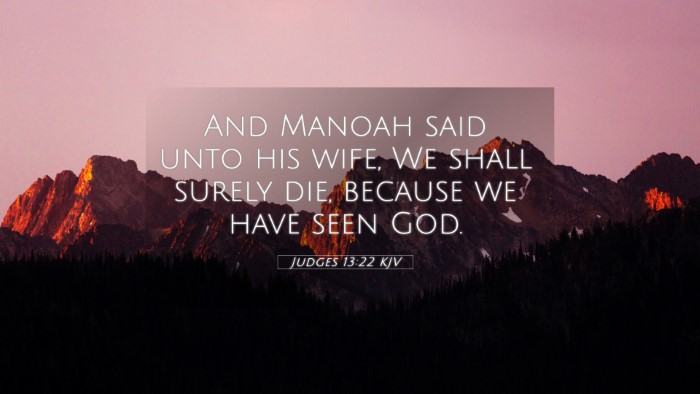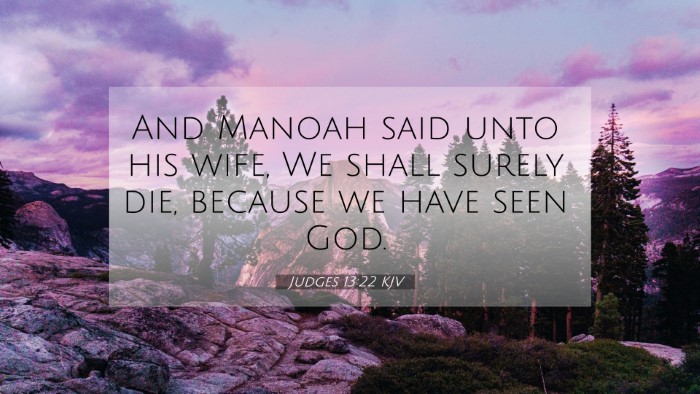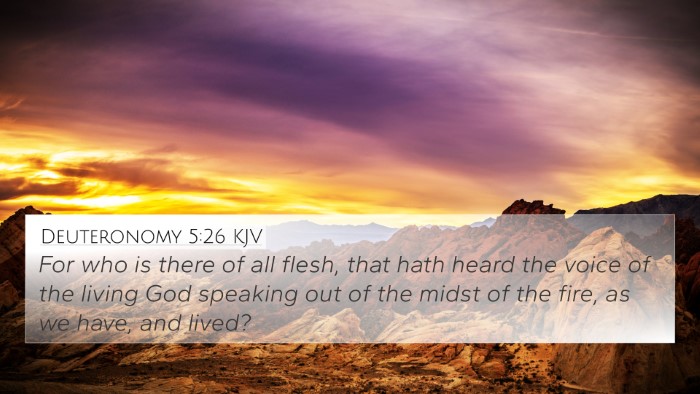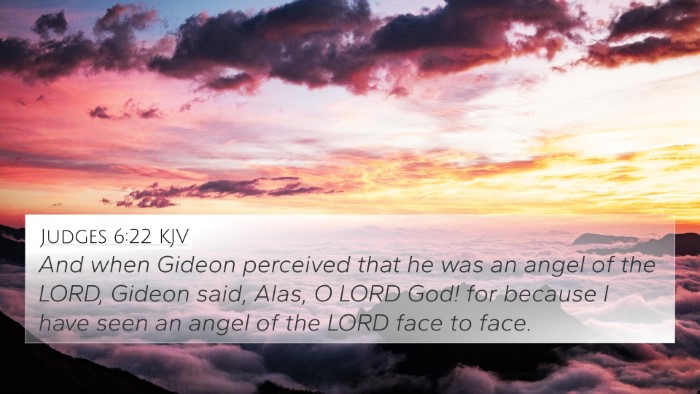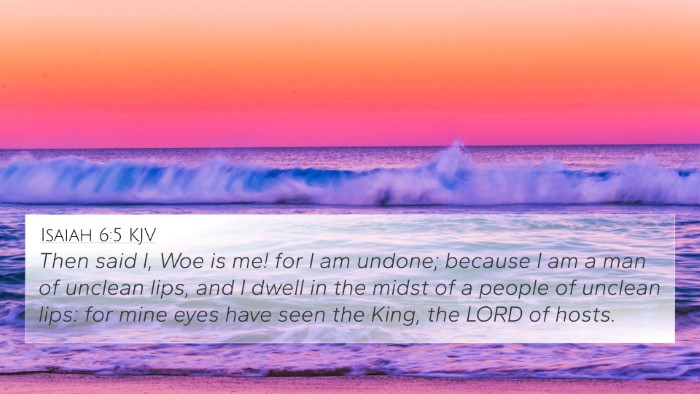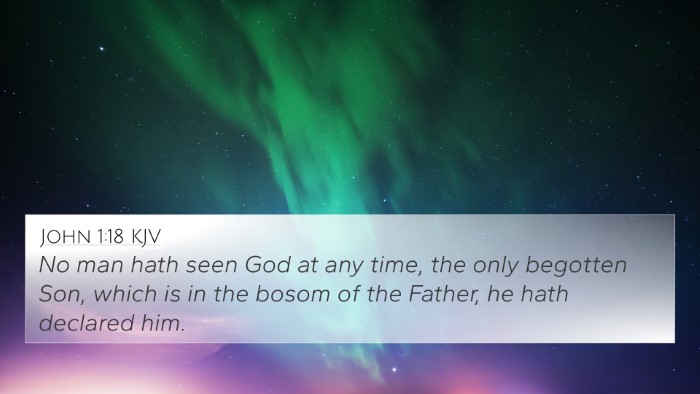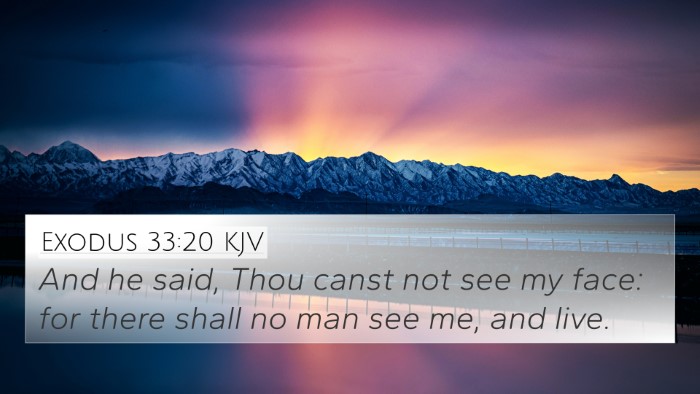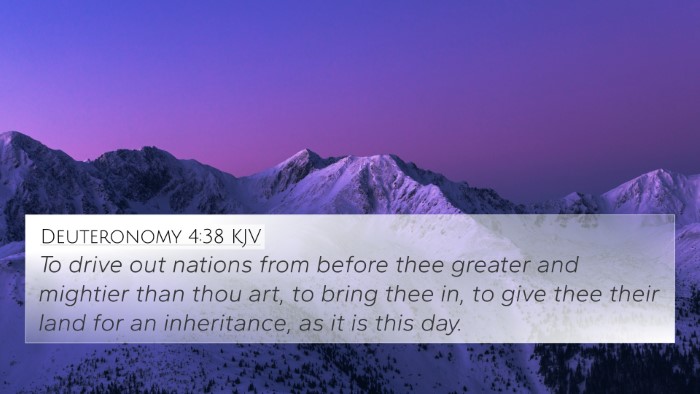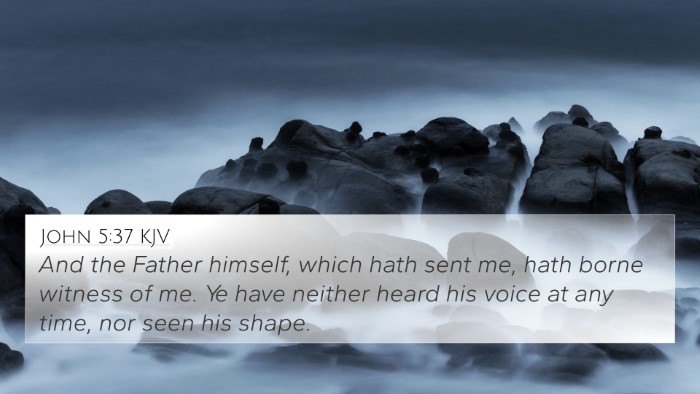Judges 13:22 Explained
Judges 13:22 states, "And Manoah said unto his wife, We shall surely die, because we have seen God." This verse captures a significant moment of realization and fear. Here, we explore the meaning behind this verse with insights from various public domain commentaries, highlighting its theological implications, historical context, and connections to other Scripture.
Contextual Background
This verse occurs in the narrative of the announcement of Samson's birth. Manoah and his wife had received a visit from the angel of the Lord, and after hearing of God's plans for their son, Manoah expresses deep concern over their encounter with the divine being.
Theological Implications
Both Albert Barnes and Matthew Henry emphasize the human tendency to fear the divine. This fear is rooted in the understanding that seeing God often implies judgment and accountability. Manoah's reaction aligns with a common theme in the Bible, where direct encounters with God or His representatives lead to powerful fear and awe.
Insights from Commentaries
-
Matthew Henry: Henry interprets Manoah's fear as indicative of the holiness of God and the reality of sin. He points out that encountering God's holiness can reveal the unworthiness of man, triggering a natural fear of death, as God is a consuming fire (Hebrews 12:29).
-
Albert Barnes: Barnes notes that Manoah's fear was not without cause; Jewish tradition held that to see God was to face death. This reflects a profound understanding of God’s nature as omnipotent and righteous, instilling an awareness of human frailty.
-
Adam Clarke: Clarke expands on the fear of Manoah, asserting that it demonstrates a lack of understanding of God's grace and purpose. He implies that God's appearances, while fearsome, also carry messages of hope and deliverance.
Connections Between Bible Verses
Judges 13:22 serves as a significant verse that links to various other biblical texts. Below are several cross-references that relate closely to this verse:
- Exodus 33:20 - "But he said, Thou canst not see my face: for there shall no man see me, and live." This verse echoes Manoah's fear about seeing God and emphasizes the danger of being in the presence of His unmediated glory.
- Isaiah 6:5 - “Then said I, Woe is me! for I am undone; because I am a man of unclean lips.” This is another instance of an encounter with God leading to fear of death due to unworthiness.
- Luke 5:8 - “When Simon Peter saw it, he fell down at Jesus' knees, saying, Depart from me; for I am a sinful man, O Lord.” This reflects how encounters with divine power lead to a realization of one's own sinfulness.
- Revelation 1:17 - "And when I saw him, I fell at his feet as dead." John’s reaction to seeing the glorified Christ illustrates a similar theme of fear in the presence of the divine.
- Job 42:5-6 - “I have heard of thee by the hearing of the ear: but now mine eye seeth thee. Wherefore I abhor myself, and repent in dust and ashes.” Job’s encounter with God leads him to a state of recognizing his own frailty.
- Hebrews 10:31 - "It is a fearful thing to fall into the hands of the living God." This draws a parallel to the fear expressed by Manoah regarding meeting God directly.
- Psalm 130:3 - "If thou, LORD, shouldest mark iniquities, O Lord, who shall stand?" This verse artfully captures the essence of human unworthiness before God, as seen in Manoah’s response.
Thematic Connections
The themes of fear, holiness, and God's sovereign plan resonate throughout various Scriptures. In Judges 13:22, we see how God’s call to purpose can be met with fear, reminding believers of the necessity for reverence in their relationship with God.
Tools for Bible Cross-Referencing
Engaging with cross-references can greatly enhance the understanding of each verse’s depth and context. Utilizing tools such as a bible concordance or a bible cross-reference guide can aid in identifying these significant connections.
Conclusion
Judges 13:22 encapsulates a profound moment of realization about the nature of God and human frailty. The insights provided by the commentaries, combined with cross-references, facilitate a deeper understanding of this passage and its significance within the biblical narrative. As believers, embracing these truths with an awareness of God's grace enables a more profound engagement with Scripture and an appreciation of divine holiness.
For further study: Explore inter-Biblical dialogues to see how themes of God’s holiness and grace weave through both the Old and New Testaments, inviting a deeper appreciation for the overarching story of redemption.

